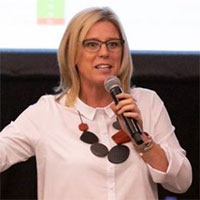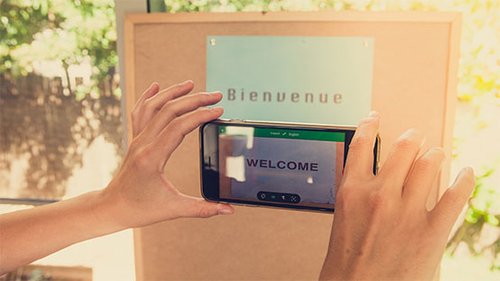Microsoft translation tools can change teaching forever

Hull College has made learning more accessible and inclusive for over 1000 students in their City of Sanctuary by embedding Microsoft translation tools throughout the classroom and the wider campus.

Picture the scene: you’ve just arrived in a foreign country, you don’t yet fully understand the language, or know anyone that can help you. In your home country you may have been a professional, perhaps a doctor or a lawyer, but there is little chance you can continue that career in your new home. On top of all this you are seeking refuge and have experienced true horrors on your journey to a new life.
Now imagine you are given the opportunity to attend your local college where you could receive help integrating into the community and a chance to gain new skills. BUT the language barrier is preventing you from doing so effectively.
Consider the frustration of being offered help but without any way of accessing it.
Sadly, this is not an unusual occurrence as more people and families become displaced across the world. However, through the use of digital tools such as Microsoft Translate technology, educators can play a vital part in improving opportunities for those getting to grips with the English language and culture as they navigate their new lives.
Educators can play a vital part in improving opportunities for those getting to grips with the English language and culture as they navigate their new lives.
As the largest (FE) college serving our City of Sanctuary, we have been at the forefront of supporting refugees and asylum seekers to adapt and acclimatise using our English for Speakers of Other Language (ESOL) programmes.
Transformative tools
My role as executive director for digital transformation at Hull focusses on identifying and implementing technologies that can support and enhance learning across our campuses. When I first arrived in post I was asked by the ESOL department to deliver what we call a ‘rainbow session’ where I presented a number of digital tools that could have an impact on their area of teaching.

Microsoft Translator, Microsoft PowerPoint Live and Immersive Reader were three of the core tools discussed, but it wasn’t until I spoke to members of our ESOL faculty after the session that the transformative nature of these tools for this cohort became clear.
Some of the teachers were in tears talking about the potential for their learners, a diverse group consisting of 12-13 different languages, all levels of education (including one student who was illiterate in his own language), and many still suffering from the shock of being displaced. One teacher said, “You’ve changed our teaching forever.”
Following this session, we implemented Microsoft Translation tools across our college to remove language barriers and empower over 1,000 learners, including child asylum seekers, to successfully engage in education despite disadvantage.
Teachers were able to utilise this technology in lessons and assessments to swiftly identify learning difficulties that had previously gone unseen when students struggled to communicate in English.
As well as delivering lessons that help our learners develop their language skills and navigate cultural differences, it is critical that all our students are taught about prevent and safeguarding both online and in person. To teach them this in English would take a considerable amount of time before they understood the subject fully, but by using translation tools we could deliver this information on day one if we wanted to.
Feeling included
Microsoft PowerPoint Live, with its ability to translate in real time to devices in a chosen language while a presentation takes place, has made a huge difference to how learners engage with lessons. Being in a room full of people that don’t speak the same language as you whilst being taught in yet another language can be very isolating. PowerPoint Live allows learners to feel more included by providing them all with the same information (albeit tailored to the individual) at the same time.
The real-time translation feature in the Microsoft Translate app also enables personalised support, accelerates English language learning, and fosters inclusion and achievement among students facing trauma and displacement.
Beyond the classroom, the college has also provided training to staff including administrators, receptionists, learning centre personnel and even catering so they can use the translate app on phones when interacting with non-English speaking students. This has led to better access to key services and allows students to further integrate into college life, enhancing their sense of belonging.
This has led to better access to key services and allows students to further integrate into college life, enhancing their sense of belonging.
Implementing this widely available, simple and free technology has proved transformative in dismantling language barriers and facilitating progression for vulnerable students despite adversity, and we’re already seeing great results.
Attendance in our ESOL lessons has improved dramatically from 65% to 91.5%, 20% of our employed ESOL learners have received a pay rise, and 5% have been able to move into paid employment – so it’s clear to see this initiative is changing lives.
Embracing Microsoft Translate in the realm of education may not be a particularly ground-breaking concept, - it's just understanding how to use the right tools for the right reason at the right time for the right purpose - but the results we have seen have been truly remarkable.
We want to pass on what we’ve learned to other further education colleges to show how technology can transform teaching, learning and assessments for students and staff. If we can do this in Hull, the fourth most deprived local authority in England, then anyone can.
More information
Hull College are finalists in the 2024 Jisc Sponsored AoC Beacon Award category for the effective use of digital technology in further education. Winners will be announced on Tuesday 27 February.
About the author
